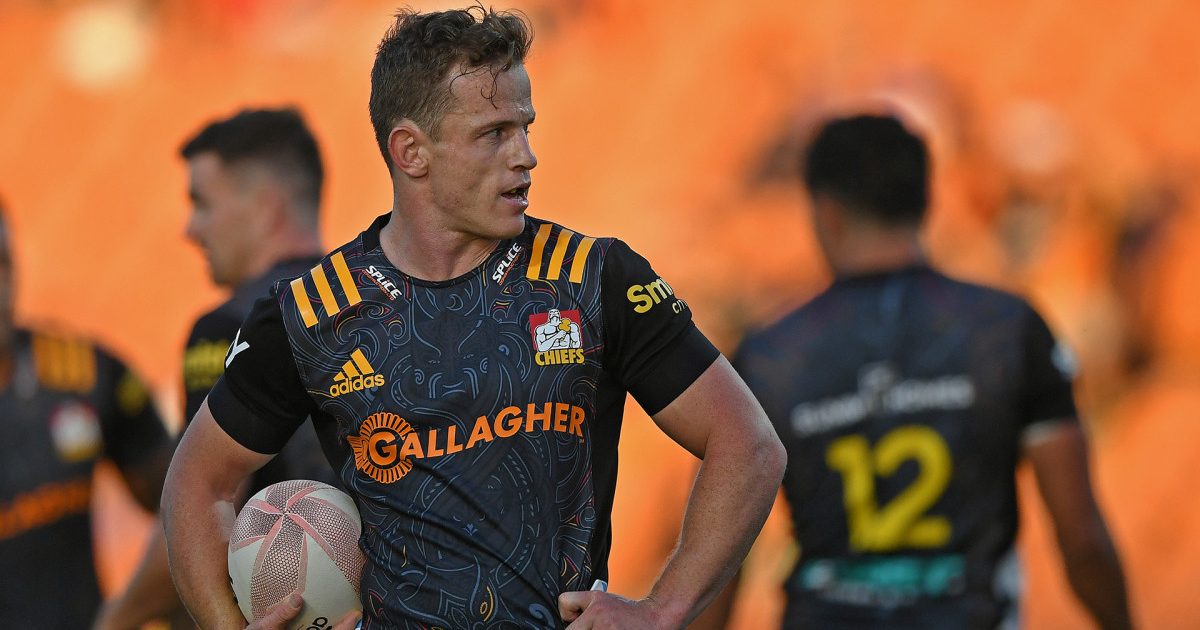Scrapping captain's referral 'brings it back to being a bit more authentic'

As with recent seasons, Super Rugby Pacific will continue to trial some minor law tweaks in 2022 – but there’s one regulation that’s been scrapped for the season that caused plenty of angst throughout last year’s Super Rugby Aotearoa competition.
The captain’s referral, which allowed a team to challenge an officiating decision during a match, has been axed.
It’s a decision which should lead to more free-flowing matches, instead of games being stopped for TMOs to run the tape back and check for a small error which may or may not have occurred in the lead-up to a score.
The captain’s referral was used to mixed success last season, with some egregious, overlooked calls eventually rectified thanks to the law variation but seemingly more often than not, the referral simply slowed down games without changing anything for the better.
The Chiefs and Crusaders were involved with two of the potentially biggest referrals of the year during their two head-to-heads throughout the regular season.
In their first-up encounter, played in front of a raucous Christchurch crowd, Chiefs captain Same Cane employed his side’s challenge shortly after halftime with the Crusaders holding a narrow 11-10 lead.
From a Richie Mo’unga linebreak, the All Blacks pivot attempted to pass the ball infield but it drifted forward and hit the deck before his halves partner Mitchell Drummond could get his hands on the ball, five metres out from the Chiefs’ line. From the ensuing rucks, Leicester Fainga’anuku always wrestled his way over the line but Weber, in an offside position, managed to hold the Crusaders winger up.
Cane asked the officials to look back at Mo’unga’s pass in-field, which referee James Doleman incorrectly ruled was batted backwards by Weber in real-time. Although replays seemed to indicate that it was, in fact, definitely a forward pass from Mo’unga, the TMO curiously decided otherwise and Weber was eventually yellow-carded, and the Crusaders awarded a penalty try. The decision left the Chiefs reeling and they struggled to remain in the contest with a man down, with the game eventually ending 39-17 in the home team’s favour.
In the second clash between the two sides, the Chiefs looked to have pulled off an unexpected come-from-behind victory, leading 26-25 inside the last minute of play. The Crusaders had been on attack inside the Chiefs’ 22 but lock Naitoa Ah Kuoi managed to secure his team a penalty at the breakdown, effectively ending the contest.
Crusaders captain Scott Barrett challenged the decision at the breakdown, suggesting that Ah Kuoi had not entered from a legal position, but after a quick check upstairs, Mike Fraser was comfortable that the penalty was the correct decision and the Chiefs were able to wind down the clock and take a valiant one-point victory.
Weber, now a permanent co-captain, alongside Cane, suggested ahead of the Chiefs’ opening game of the season that it was probably a good thing that the law trial had been consigned to the scrap heap – although not because it went against them in a major way in the loss to the Crusaders.
“I didn’t mind challenging the referees,” he said, “it was just that one that we got… Well, don’t know if I want to bring it back up but I think we got every other one right, we had a relatively good track record.
“I’m pretty sure the referees will be happy to see it go, keep me out of their ear at least this year. Probably brings it back to being a bit more authentic, probably better for the game.”
Captain’s referrals weren’t retained for last year’s Super Rugby Trans-Tasman competition and given the law also won’t be utilised in Super Rugby Pacific, it’s fair to assume the powers-that-be have decided to can it indefinitely.
The Chiefs will take on the Highlanders on Saturday afternoon in the first game of the year to involve New Zealand teams.






























































